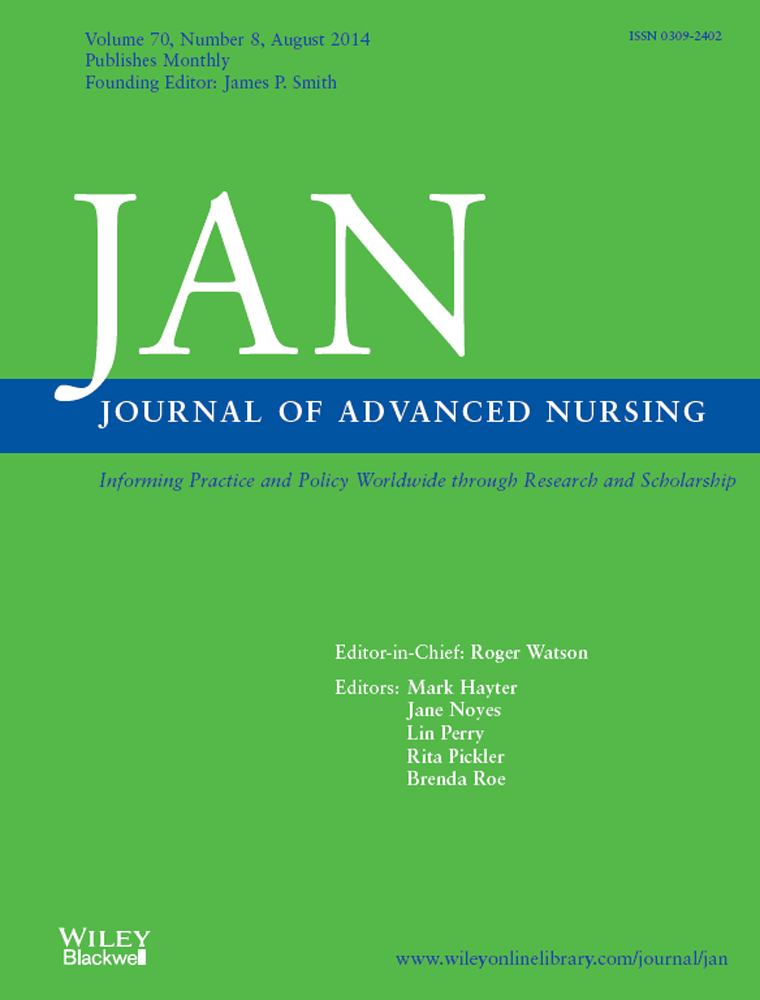Nursing practice in nutritional care: a comparison between a residential aged care setting and a hospital setting
Abstract
Aim
To explore the similarities and differences in the nursing practice in nutritional care between a residential aged care setting and a hospital setting.
Background
Despite being preventable and treatable, undernutrition remains a problem for many older people in residential aged care and hospital settings. Nurses have a crucial role in assisting people who are unable to eat independently and are uniquely positioned to implement solutions that will lead to better nutritional care.
Design
During 2007–2010, an action research study was conducted, underpinned by the principles of the participatory world view to address undernutrition in a residential aged care setting and a hospital setting.
Methods
The multimethod approach of data and between-method triangulation were used to collect and analyse qualitative non-participant observations and action research group data. Non-participant observations and action research group data were qualitatively analysed using the Analytic Hierarchy.
Findings
How nurses chose to participate in the provision of nutritional care and assert their autonomy when changing practice to nutritional care affected the quality of the resident/patient mealtime experience. Operational efficiency influenced the choices that nurses made about the type of intervention to implement to improve nursing practice in nutritional care. Nurses required management approval to change practice in nutritional care.
Conclusion
The reasons for undernutrition are multifactorial and more research is needed to investigate the organizational structures and processes that affect the delivery of nutritional care across role functions, how these affect the continuity of care and the nurses' role in defining the culture around resident/patient mealtimes.




